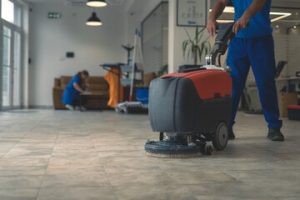House Cleaning Helena Montana begins with the smallest decisions that build habits over time. It is not simply about dusting or scrubbing surfaces. It is a mindful approach to creating an environment that supports calm and balance. Every clean corner becomes a reflection of how a person values clarity in daily life.

A freshly cleaned home shifts how people think and feel. The absence of clutter opens the mind to new ideas. Even the scent of a well-maintained room changes mood and motivation. House cleaning, when done with intention, becomes a quiet act of renewal.
The way people approach cleaning has changed in surprising ways. New materials and eco-friendly options have emerged to simplify daily routines. Instead of harsh chemicals, more homes turn to natural solutions that care for both people and the environment. This balance of effectiveness and safety has redefined modern cleanliness.
A clean home does more than look good—it performs better. Air circulates freely when dust is managed well. Furniture lasts longer when maintained properly. Cleanliness has evolved into a form of preservation rather than a repetitive task.
Technology has quietly entered the cleaning space too. Tools now think and move with human precision. Machines can detect mess, map rooms, and adapt to patterns of daily life. Yet, even with these advances, human touch remains unmatched in detail and care.
The artistry of house cleaning lies in awareness. Each motion of sweeping or folding carries rhythm and intention. When people see cleaning as part of self-expression, it stops feeling like labor. It becomes a personal ritual that restores order and energy.
Modern homes demand smarter cleaning strategies. Smaller spaces require flexibility, while larger ones need systematic organization. Understanding flow and function has become essential. Cleaners now focus on how people live rather than simply where they live.
Clean air has become one of the main goals of home maintenance. Dust particles, allergens, and hidden pollutants are constant threats. The discipline of cleaning now extends beyond visible dirt. It is about protecting the invisible spaces that sustain health.
Sustainable house cleaning is now a lifestyle movement. People are choosing tools and products that reduce waste. They think beyond convenience and value long-term impact. Cleaning becomes a statement of responsibility toward the planet.
Many households are discovering the emotional power of cleanliness. A well-ordered space calms anxiety and sharpens focus. Studies have linked cleanliness to emotional stability and restfulness. Every clean space becomes a gentle reminder to slow down and breathe.
One fascinating shift in cleaning culture is the rise of mindful routines. People now clean not just for aesthetics but for peace. They turn cleaning time into moments of reflection or gratitude. These small rituals create harmony between body and space.
House cleaning has also taken on social meaning. Shared living arrangements often reflect shared responsibilities. Cleaning together builds cooperation and respect. It transforms homes into communities where care is collective.
In a post-digital world, decluttering is not just physical—it is mental. People have started applying minimalist philosophies to cleaning. Keeping less means cleaning less, but living more. This shift has made house cleaning part of the broader pursuit of simplicity.
Modern lifestyles have blurred the lines between work and home. With more people staying indoors, cleanliness has become essential for productivity. A tidy workspace translates into clearer thoughts. Cleanliness has become the foundation of modern wellness.
Even scents have become an important part of the cleaning experience. Fragrance now enhances not just freshness but emotional well-being. Some people choose calming aromas to boost relaxation. Others prefer energizing scents that spark motivation.
Another growing trend is digital cleaning management. Smart sensors and mobile reminders help track cleaning schedules. Technology reduces guesswork and builds consistency. Homes are becoming dynamic systems that respond to changing needs.
Yet, true cleanliness is still rooted in human effort. Machines can sweep and sanitize, but they cannot sense satisfaction. The pride that follows a completed cleaning session is uniquely human. It comes from the blend of effort, attention, and care.
Some people view cleaning as a creative expression. The arrangement of furniture, the choice of textiles, the lighting—all interact with cleanliness. Every decision adds to the mood of a space. A clean home becomes a canvas for personal identity.
The concept of house cleaning now extends to energy balance. People believe that physical clutter can trap negative energy. Clearing it out restores flow and lightness. The act of cleaning becomes both spiritual and therapeutic.
New generations are also redefining cleaning culture. Younger households prioritize convenience, aesthetics, and sustainability. They embrace digital guidance and minimalist principles. Their homes reflect values of efficiency and mindfulness.
The idea of cleaning as exercise has also gained popularity. Sweeping, mopping, and organizing engage multiple muscle groups. It turns routine chores into functional workouts. People realize that maintaining their homes can also maintain their health.
Another emerging perspective is sensory cleaning. It involves paying attention to textures, sounds, and sensations during cleaning. The soft glide of a cloth, the rhythm of a brush, or the sound of running water can soothe the mind. It transforms chores into sensory therapy.
Some have integrated cleaning into time management systems. They use short, focused intervals to complete small tasks. This approach reduces overwhelm and builds consistency. It teaches discipline in both home and personal organization.
The pandemic era reshaped the meaning of cleanliness. Hygiene became an act of protection and empathy. House cleaning was no longer optional but vital. It marked the intersection of safety and responsibility.
After that period, people developed deeper respect for their homes. They began to view cleanliness as a form of gratitude. Cleaning became a way of taking care of oneself and others. Homes turned into sanctuaries built on mindfulness.
Sustainable innovation continues to inspire the future of house cleaning. Waterless cleaning tools, reusable materials, and biodegradable solutions are transforming routines. The focus is on efficiency without waste. This direction defines the new era of smart cleaning.
Education around cleaning has also evolved. People now learn about surfaces, materials, and safe combinations. Knowledge has become as important as effort. Cleaners no longer guess—they understand and apply.
One overlooked benefit of cleaning is how it trains perception. People learn to notice small details, subtle shifts, and hidden messes. It develops awareness and sharp observation. The more they clean, the more they understand their environment.
Cleaning habits also shape behavior in other areas of life. A person who values order at home tends to value discipline elsewhere. The process teaches patience, commitment, and problem-solving. House cleaning becomes a quiet mentor in daily growth.
Cultural influences shape how people define cleanliness. In some homes, it symbolizes respect and hospitality. In others, it represents pride and discipline. Despite these differences, the desire for a clean home is universal.
Minimalist architecture has also influenced cleaning habits. Open layouts and neutral tones highlight even the smallest traces of disorder. Cleanliness becomes part of the aesthetic. The design of space encourages maintenance rather than avoidance.
Cleaning rituals often reveal family traditions. Some people follow inherited methods passed down through generations. Others create their own versions suited for modern life. These rituals become part of a home’s story.
As people embrace smart homes, the relationship with cleaning changes again. Devices may handle repetitive tasks, but humans curate experiences. They decide what feels clean and what feels complete. It shows that cleanliness remains deeply personal.
Cleaning is also entering the world of design innovation. Materials now resist stains, absorb odors, or clean themselves. Architects and designers collaborate to build homes that sustain cleanliness naturally. The boundary between cleaning and design keeps fading.
For many, house cleaning has become an act of resilience. It allows people to take control amid uncertainty. When the outside world feels chaotic, a clean home offers stability. It becomes a refuge that restores balance.
Some people use cleaning to reconnect with memories. Polishing old furniture or folding inherited linens evokes nostalgia. These actions preserve history while renewing the present. Cleaning bridges the past and the now.
The next generation of cleaning practices will likely focus on adaptability. Homes will learn and respond to their occupants’ habits. Cleaning tools will become intuitive partners in daily life. Still, human hands will remain the heart of it all.
At its core, house cleaning is about harmony. It aligns physical space with emotional rhythm. Each task, no matter how small, builds peace within. A clean home does not just shine—it breathes.
House cleaning, once a routine chore, has transformed into a modern philosophy. It integrates health, sustainability, technology, and mindfulness. It teaches people to live with awareness and care. In the end, a clean home mirrors a clear mind and an open heart.
